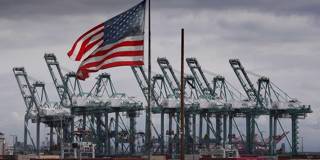While heightened geopolitical tensions obviously are not conducive to a well-functioning global economy, it is important to recall why tensions escalated in the first place. By undermining the belief in international cooperation and advancing the view that trade is a zero-sum game, protectionism helped create today’s tensions.
NEW HAVEN – It has been puzzling to see many prominent economists decry the Trump administration’s tariffs as welfare-reducing protectionism, while approving of the Biden administration’s even more drastic steps to reshore, friend-shore, and decouple from China. In a March 2018 Chicago Booth poll of economists, 100% of respondents opposed new US tariffs; but then a largely overlapping set of respondents were skeptical of global supply chains when asked in January 2022. Only two respondents (with me being one of them) disagreed that a reliance on foreign inputs had made US industries vulnerable to disruptions.

NEW HAVEN – It has been puzzling to see many prominent economists decry the Trump administration’s tariffs as welfare-reducing protectionism, while approving of the Biden administration’s even more drastic steps to reshore, friend-shore, and decouple from China. In a March 2018 Chicago Booth poll of economists, 100% of respondents opposed new US tariffs; but then a largely overlapping set of respondents were skeptical of global supply chains when asked in January 2022. Only two respondents (with me being one of them) disagreed that a reliance on foreign inputs had made US industries vulnerable to disruptions.